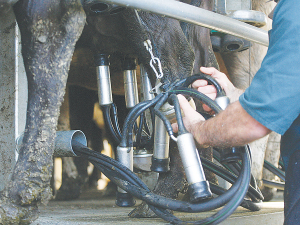Meat Industry Association CEO to Step Down
The Meat Industry Association of New Zealand (MIA) today announced that Chief Executive Officer Sirma Karapeeva has resigned from the role.
 The Government's belated announcement to free up visa arrangements for up to 9,000 migrant workers in the primary sector has been welcomed.
The Government's belated announcement to free up visa arrangements for up to 9,000 migrant workers in the primary sector has been welcomed.
There's been a swift and positive response from the red meat and dairy sectors to the Government's belated announcement to free up visa arrangements for up to 9,000 migrant workers in the primary sector.
A much simplified system will be introduced for these people to gain NZ residency - something industry groups have been pleading with Government to fo for months due to labour shortages right across the primary sector. It follows an earlier announcement that will see quarantine free travel for RSE workers from Samoa, Tonga and Vanuatu.
Meat Industry Association chief executive Sirma Karapeeva says the announcement will deliver much needed certainty to the industry - especially in respect of halal slaughtermen.
"Halal processing is a core part of the New Zealand meat processing industry with approximately 43% of New Zealand total red meat exports halal certified for Muslim consumers in both Muslim and non-Muslim countries," she says. "Without halal butchers, there is a real potential that plants would be forced to reduce value-add processing or decide to not save certain products."
But Karapeeva says the decision is only part of the solution and the industry is seeking a more permanent solution that will simplify the entry of migrant halal butchers - such as a special visa.
The move has also been welcomed by DairyNZ with chief executive Tim Mackle saying it's pleasing to see Government acknowledging the pressure farmers are under, due to being short-staffed, and recognise the critical role international workers play on NZ farms.
"While this decision is positive, it doesn't fully address the scale of the staff shortages on farm - dairy farmers are still short of an estimated 2,000 to 4,000 workers," Mackle says.
Agriculture Minister Damien O'Connor agrees and says immigration is one way to source people. However, he adds there is a need to attract more New Zealanders into life on the land and our primary sector supply chains.
Castle Ridge Station has been named the Regional Supreme Winner at the Canterbury Ballance Farm Environment Awards.
The South Island Dairy Event has announced Jessica Findlay as the recipient of the BrightSIDE Scholarship Programme, recognising her commitment to furthering her education and future career in the New Zealand dairy industry.
New Zealand and Chile have signed a new arrangement designed to boost agricultural cooperation and drive sector success.
New DairyNZ research will help farmers mitigate the impacts of heat stress on herds in high-risk regions of the country.
Budou are being picked now in Bridge Pā, the most intense and exciting time of the year for the Greencollar team – and the harvest of the finest eating grapes is weeks earlier than expected.
The Real Estate Institute of New Zealand (REINZ) has released its latest rural property report, providing a detailed view of New Zealand’s rural real estate market for the 12 months ending December 2025.

OPINION: A mate of yours truly reckons rural Manawatu families are the latest to suffer under what he calls the…
OPINION: If old Winston Peters thinks building trade relations with new nations, such as India, isn't a necessary investment in…